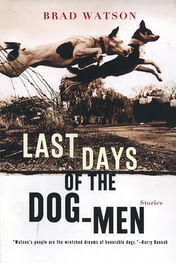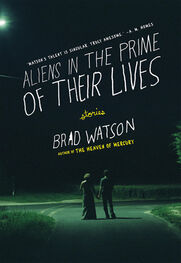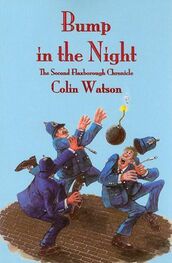How do Watson’s influences show themselves, and do they add to or subtract from the originality of his novel? Do the “ghosts” of Southern literature overwhelm his work or does he manage to keep them in their place, and how? What elements remind you of Faulkner, Welty, O’Connor, or other writers?
“The heaven of mercury” is the second circle of heaven in the “Paradiso” of Dante Alighieri’s fourteenth-century religious allegory, The Divine Comedy . What was Watson trying to achieve with such an allusion in the title of a novel about twentieth-century Mississippi? One reviewer commented that the title was the weakest part of the book — do you agree? What about the author’s choice to use mock Latin chapter titles — does that work with, or against, the “Southernness” of the novel?
Does the community in Mercury change from the beginning to the end of the novel or does it seem to be suspended in time? How, if at all, does the outside world affect the way the story plays out?
Fellow southern novelist Larry Brown was one of many who compared Watson’s novel not only to Faulkner but also to South American novelist and Nobel Prize winner Gabriel García Marquez. What does Watson have in common with García Marquez? Are the fabulistic elements in the book examples of “magic realism,” or are they really fantasies of the individual characters? What is the role of dreaming and fantasy in this book?
Does Watson effectively combine an intimacy with his individual characters with a larger overview of their lives? What is gained and what is lost in his narrative strategy?
Is the narrator omniscient? How does the novel’s use of various points of view shape the narrative and, ultimately, the book’s view of the world, or your view of the book?
Finus is an old man when we are told the story of his love for Birdie Wells and of life in Mercury. Watson claims that his older relatives were the most alive of all the people he knew. Why do you think he chose Finus as the main character? How do you think his age affects the tone and pace of the book?
In an interview, Watson explained that when he first started writing this book, he was thinking about the idea of communion between the living and the dead. Does this novel believe in an afterlife, or transcendence? If so, of what kind?
THE “WATSON” POEMS
Even an author can become a character in someone else’s work and imagination. A long-time friend of Brad Watson’s, accomplished poet Michael Pettit, has been writing “Watson poems” since the days when both were in graduate school in creative writing at the University of Alabama, and Pettit, his life in transition, was spending nights on Watson’s couch. In a comparably transitional frame of mind, Watson was considering leaving graduate school and becoming a navy fighter pilot. Thus the genesis of “Blue Angel,” reprinted below. Over time, however, like most fictional characters, Pettit’s “Watson” began to take on an independent life of his own. (Unlike Pettit’s Watson and Watson’s Finus, the author of The Heaven of Mercury was never assigned to a newspaper’s obit page.)
BLUE ANGEL
It goes time, indolence, boredom,
depression and Watson figures his way out
is at twice the speed of sound. It’s booze
tonight though, sitting home with thoughts
of Navy jets, Mach II, and the blues
he’ll leave behind like the sudden sonic boom
that shatters the farmer’s rain gauges,
drives his milk cows and wife crazy.
Watson uncorks his bottle, already over
the next flat state, delighted and busy
doing a swift 1,500 miles per hour.
Glassy-eyed, he turns the pages
of a glossy book: F-104 Starfighters,
the XP-86 Sabre jet, an F-4 Phantom.
Behind each dark-tinted canopy
he sees his own face: composed, handsome,
heroic. And it’s there amid the debris
of an airshow disaster, the four fires
on the desert, the four perfect black
columns of smoke. O to be a Blue Angel
burning, becoming wholly and finally air!
Watson knows how, step by step, the soul
can die in the living body. He’ll make sure
they go together, and when they do, go quick.
PERDIDO KEY
Watson’s found work, like a dime on a sunny street,
a happy accident. Salaried, living by the sea,
he’s writing half the weekly news the Gulf Shores
Independent prints. It’s not the Sacramento Bee ,
not the Boston Globe , but he’s got a new used car
and a white fishing cap his press badge flashes from.
By dumb luck his beat is the water: the whole Gulf
is his, from the Miracle Mile to Mobile, every wave,
every beauty on a beach towel his to cover.
O happy Watson! O his deep tan, his bright smile,
his sharp pencil! So what happens? No news but what
he hunts up: shady sewer schemes, rapacious condo lords,
worthless lives of sleaze and greed. Current hot story?
A threat to the habitat, a threat to the very life
of the beach mouse. Diminutive, less than an inch long,
beach mice don’t have half a chance without Watson.
He’s discovered Perdido Key developers want high rises
rising where the beach mice roam. O none of that!
Watson grabs his cap and camera, follows tiny tracks
across the damp sands, across dry and windy sands.
Day and night he’s by their sides, camping out
under the stars, sending back impassioned articles—
how the little mice live, how they eat, love, nest,
their lives happy until trapped with peanut butter
and shipped off to make room and to make money
for out-of-state dentists and out-of-work locals.
Someone must stand by the beach mice. They are all
— Aren’t they? — that stands between us and oblivion.
And so forth on page one, his byline black as a cloud.
So what happens? No one buys it. Who’s he kidding?
Mice and oblivion? The Independent gets heavy mail,
negative, and Watson gets reassigned to — Where else? — obits.
HURRICANE WATSON
O the wild winds! Great spinning flower of rain
blooming off in the Gulf, rising from warm waters
five miles high, a hurricane heads toward Watson.
Who today — Happy Birthday! — turns thirty,
whose big gift is this counter-clockwise tempest,
this tropical depression gone crazy.
He awaits it, spirit tossing like palm trees
the wind waves up and down the beaches.
As the loose air freshens — sigh to moan to wail—
Watson glories in the elemental: spitting rain
growing steady, scudding gray clouds lowering,
beasts and human beings scuttling for cover.
Not Watson, headed out into it, ace reporter
on assignment: Our weather plane lumbers
through skies heavy as the heavy deep sea below.
The pilots lean into their instruments,
the navigator whispers numbers,
the weatherman’s eyes widen.
So what if he doesn’t return, so what
if this great storm scatters Watson’s little plane
and he never makes its eye — that balmy paradise—
but spins over the wet, windswept world
for the short remainder of his life, howling
something we down here will hear as the wild,
wild wind. So what if Watson’s blown away.
It’s his birthday and he wants it, bad,
so why not, why the hell not, let him have it.
From Blue Angel: Being the Sacred and Profane Life and Times of Watson, Founded on Fact , by Michael Pettit. Copyright Michael Pettit. (“Blue Angel” and “Hurricane Watson” first appeared in the Indiana Review .)







